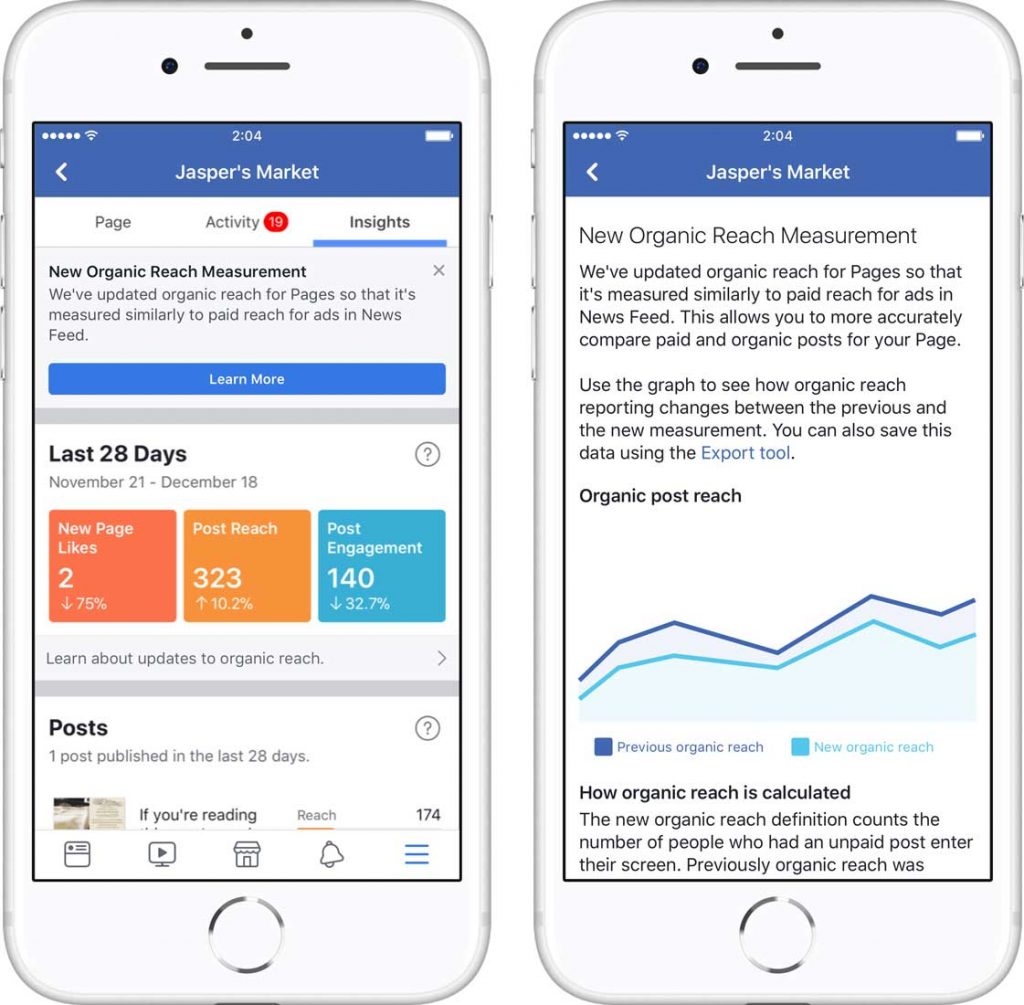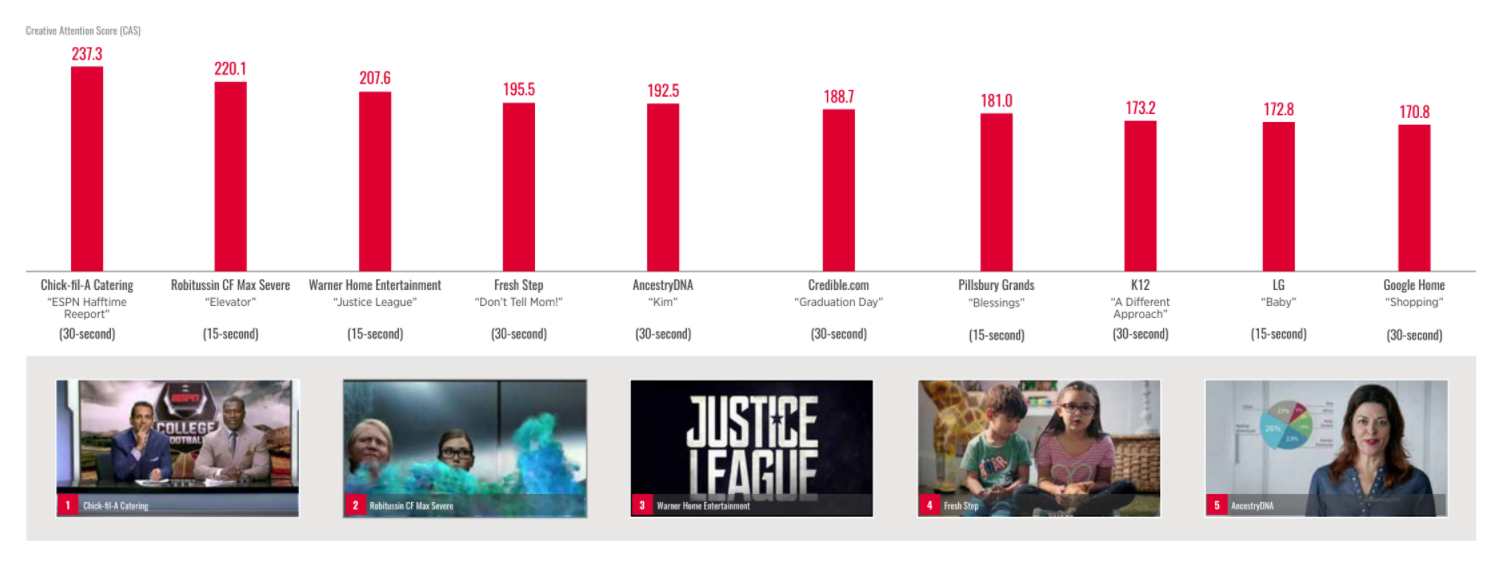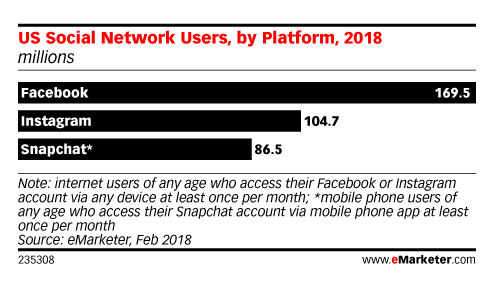In this week’s Week in Review: Criteo’s Q4 results beat expectations after ITP scare, Google updates Chrome to block intrusive ads, and COBA warns that Brexit could cost UK broadcasters $1 billion per year in international investment. To receive an update on the industry’s top stories every Friday, sign up to the weekly Video Round-Up.
Top Stories
Criteo’s Q4 Results Beat Expectations, but Doubts Persist Over Post-GDPR Future
French retargeting specialist Criteo beat expectations for Q4 last year, with revenue excluding traffic acquisition costs reaching $277 million and net income hitting $52 million. Stocks soared by up to 24 percent after the results were announced, as some had fear a poor quarter for the company. Investor confidence was shaken last year when Criteo admitted it had underestimated the impact of Apple’s ‘Intelligent Tracking Prevention’ (ITP) update to its Safari browser, but these strong results seem to have calmed fears. Doubts still remain though about whether the company’s current business model will be able sustainable given the upcoming European General Data Protection Regulation (GDPR). Criteo maintains that the data it deals with isn’t “sensitive data”, and so doesn’t require the same strict data handling processes used by others in the industry; it remains to be seen if EU authorities will agree.
Google Chrome’s Ad Blocker Goes Live
A long awaited update for Google Chrome which adds an ad blocker designed to filter out annoying ads finally went live on Thursday, having been announced last year. Chrome will now block ads on sites which fall short of the ‘Better Ads Standards’, specifications set by the Coalition for Better Ads, though users will have the ability to disable the setting if they wish. Formats banned by the coalition include auto-play ads with sound, large sticky ads, and pop ups. Publishers will have thirty days to remove offending formats from their sites, after which Chrome will begin blocking all ads on sites which violate their standards, even ads which themselves aren’t prohibited.
$1 Billion Annual UK TV Investment Under Threat by Brexit, warns COBA
Britain’s withdrawal from the EU could cost its TV industry up to £1 billion a year in international investment, according to research commissioned by the Commercial Broadcasters’ Association (COBA) and conducted by media analysts Oliver & Ohlbaum. The research found that international firms invested £1.02 billion in UK broadcasters last year, and COBA says Britain risks losing this investment as it may no longer be considered a global content hub after leaving the EU. It is of course unlikely that UK broadcasters would lose all international investment after Brexit, but as COBA itself represents many large international broadcasters that invest in the UK currently, its warning will likely be taken seriously by Britain’s TV industry.
The Week in Tech
YouGov Launches Ad Platform as GDPR Workaround
UK polling and analytics company YouGov is launching a new product, YouGov Direct, which will give individuals the ability to control which data they make available to third parties for advertising. YouGov says the service will use blockchain technology to verify data transactions between consumers and advertisers, and will allow panelists to choose which data they make available to third parties while remaining anonymous.
AppNexus Sees 230 Percent Growth in RTB Video Spend
AppNexus has seen a 230 percent compound annual growth rate of real-time bidding (RTB) video spend since the launch of its videoplace market in late 2015, it announced this week. The company has released a series of stats demonstrating the speed of growth of its video business. Other stats include:
- Video Scale: 57 billion ad requests/month via the AppNexus Video SSP, with more than 450 billion ad requests/month via the AppNexus video marketplace.
- Direct Video Publisher Relationships: The number of sellers using the AppNexus Video SSP has increased from 15 to more than 150 since launch. The video viewability across these direct video sellers is 70%, above industry averages.
- Video Demand: AppNexus achieved a 200 percent average quarterly growth rate for video bidder spend in 2017 on the platform, with 272 daily active video buyers and 1,250 brands buying video impressions daily in the marketplace.
- Video Header Bidding: More than 30 publishers are using Prebid Video for video header bidding, with more than 1 billion video header bidding ad requests monthly. Video publisher revenue from video header bidding increased by 100% from Q3 to Q4 2017.
Facebook Changes Measurement of Page Posts
Facebook has updated the way it measures the reach of posts put out by Facebook Pages, now reflecting the number of times a given post has appeared on a user’s screen, rather than the number of times it has appeared in users’ News Feeds. This brings measurement in line with the way Facebook measures ad reach, but the old metric will remain available for a few months to accommodate businesses which rely on it for their own reporting.
Lotame Launches New ‘Precision Audiences’ Product
Data management platform (DMP) Lotame this week launched a new data segmenting product, called ‘Precision Audiences’, which uses AI to continually validate the accuracy of its segments. Lotame says the product exceeded industry benchmarks in 20 “major” countries during tests, and scored double the accepted industry benchmark when tested on an audience of 20 million females aged 18-34 in the US. “As barriers to transparency and accuracy in digital advertising continue to grow, Lotame is going all-in on its promise to deliver validated, on-target audience segments and insights for our customers,” said Andy Monfried, CEO and founder of Lotame.
The Week in TV
Liberty Global Sees Growth of ‘Next Gen’ Video Platforms
Liberty Global generated revenues of $3.9 billion in Q4 last year, bringing total yearly revenue to $15 billion, a 2.3 percent increase on 2016. This growth was led by a strong performance from Virgin Media, Liberty’s largest business, and by a solid performance from its next-gen video platforms including Horizon TV, TiVo, Virgin TV V6 and Yelo TV. These platforms picked up 210,000 subscribers in the fourth quarter, helping to offset a loss of fixed-cable subscribers in Europe.
Sky and BT Retain Grip on Premier League Rights
Sky and BT have won five of seven available packages for the Premier League’s UK broadcasting rights, with the final two packages still under contention. The two will pay a combined £4.4 billion for the 2019-2022 rights they’ve bought so far, substantially less than the £5.1 billion paid at the last auction, and analysts don’t expect the last two packages to make up the difference. A potential Amazon bid has so far not come to fruition, and with the most desirable packages already sold, the company has clearly decided against taking on Sky and BT head on for now.
TVision Names Most Effective US Prime Time TV Ads
Chick-fil-A’s ESPN ‘Hafftime Reeport’ ad was the most effective US prime time ad for capturing audiences’ attentions, according to TV measurement company TVision’s Q4 2017 Eyes on Screen TV Attention Report. The report measures attention data from an opt-in panel to measure how effective individual ads are for keeping viewers’ eyes on TV screens. TVision’s ranking of the most effective ads found that no single formula was most effective, with a mix of 30 and 15 second spots, and a range of serious, humorous, and third-party testimonial-based ads making it into the top ten.
The Week in Publishing
Google Launches ‘Stories’ Update to AMP
Google has released an update to its ‘Accelerated Mobile Pages’ product which gives publishers a new ‘stories’ format to use across the web. The format uses a mix of images, video and text which users scroll through, much in the same way stories work on platforms like Snapchat and Instagram. Google says these stories are optimised for fast loading on mobile, and can be viewed through Google search results, as well as on the publisher’s own site. The Washington Post, CNN and Mashable are among the publishers already using the format.
Snap Opens Up Marketing API
Snap this week opened up its marketing application programming interface (API) to all advertisers, brands and agencies, giving abilities to automate ads and integrate external data to anyone advertising with Snapchat. The company first opened up its API to a select few tech partners back in 2016, and will likely hope that making these tools more widely available will attract more brands onto the platform.
Facebook is Losing Younger Users, says eMarketer
Young audiences are moving away from Facebook and onto rival platforms like Snapchat, according to eMarketer’s latest forecast on social network usage. eMarketer predicts that this year less than half of US internet users between 12 and 17 years old will use Facebook at least once per month. While Facebook is still adding monthly users, this is largely down to older age groups, and eMarketer expects it to lose two million users aged 24 and younger this year. While many are migrating to Instagram instead, which Facebook owns, not all are, and Snapchat remains the social platform of choice for the 12-24 age range.
YouTube Red to Roll Out in Up To 100 New Countries
YouTube will roll out its paid subscription service, YouTube Red, in to up to 100 countries around the world, according to CEO Susan Wojcicki. Speaking at Recode’s Code Media conference, Wojcicki didn’t name specifically which countries, or give a timetable for when those countries can expect YouTube Red to launch, but the announcement confirms that the company still has big ambitions for its paid service. Read more on VAN.
Premium Editorial Sites Outperform Social Media for Long-Term Memory Encoding, finds AOP
A new study by Newsworks and the Association for Online Publishing (AOP) finds that left brain memory encoding, which processes words and detail, is 42 percent stronger when people view ads on premium editorial sites than when they see the same ads on social media sites. Right brain memory encoding (more emotional and global aspects of processing) is strong for both premium sites and social media, but ads on premium sites generate a nine percent stronger response.
Long-term memory encoding correlates with decision making and purchase intent, and so ads seen alongside premium editorial content are more likely to lead to purchases, going by this study’s results.
The Week for Agencies
Interpublic Forecasts Strong 2018 After Beating Q4 Expectations
Interpublic Group said it feels optimistic about 2018 after beating expectations with its Q4 results. Total revenue reached $2.34 billion, representing 3.4 percent year-on-year growth, a positive end to a challenging year for the company. Chief executive Michael Roth said in an investors’ call that the group had been hit by caution from its clients, many of whom were facing market disruption and competition from online rivals, but predicted that a strengthening global economy and favourable tax conditions in the US would make for a stronger 2018.
Omnicom Shares Drop as Company Hit by Revenue Dip
Omnicom Group Q4 results saw revenue and profit fall, meaning the company’s net income for 2017 fell 5.2 percent to $1.09 billion. While net income in Q4 fell 1.5 percent year on year to $4.2 billion, disappointing results were exacerbated by the new US tax laws, which landed the group an extra $106.3 million in taxes and saw Q4 net income plummet 27 percent year-on-year. CEO John Wren told analysts that while 2017 has been difficult, he believes the new tax laws will benefit the company in the long run, and that consumer spending might rise which would increase marketing budgets.
Unilever Pledges to Cut Investment in Platforms Which “Breed Division”
Unilever’s CMO Keith Weed has announced that his company will cut investment in platforms which “create division in society”, a move that seems targeted at social media companies which he says have lost society’s trust. He also said that Unilever will only partner with organisations committed to creating a better digital infrastructure going forward, as part of an effort to tackle issues like measurement which have plagued digital advertising.
Weed mad the announcements during his keynote speech at the IAB Annual Leadership Meeting in Palm Desert, California. The speech was something of a call to action for the industry, with echoes of P&G chief brand officer Marc Pritchard’s speech at the same conference last year. Pritchard’s speech was generally acknowledged to have sent shockwaves through the industry, and it will be interesting to see if Weed’s speech has the same impact. Read more on VAN.
Partnerships of the Week
JW Player and SpotX Launch Video Player Bidding Solution
Video platform JW Player this week announced the launch of Video Player Bidding in an exclusive partnership with SpotX that will last 12 months. JW Player says Video Player Bidding reduces latency and improves fill rates and monetisation compared with traditional header bidding, by placing integrating ad decisioning within the video player itself. Any eligible publisher that uses JW Player and meets SpotX’s brand safety and verification requirements will be able to use Video Player Bidding with SpotX by enabling the integration within JW Player’s interface.
Shell Partners with Oath for Next Stage of “Make the Future” Campaign
Oath has agreed a global deal with Mediacom and Shell to take the energy brand’s “Make the Future” campaign into its next phase. The new phase turns Shell’s “On Top of the World” music video into an interactive design which lets the audience explore clean energy projects through a WebGL “Globe” activation, created by Oath’s RYOT Studio global solutions team in collaboration with UNIT9.
Hires of the Week
Keith Eadie Appointed VP and GM of Adobe Advertising Cloud
TubeMogul’s CMO and head of strategy Keith Eadie has been taken on as vice president and general manager at Adobe Advertising Cloud, part of TubeMogul’s ongoing integration into Adobe after its acquisition over a year ago.
Michael Frohlich Chosen as Ogilvy UK CEO
Ogilvy Group UK has chosen Michael Frohlich as it’s new CEO, WPP announced this week. Frohlich currently leads WPP’s IAG account, and will be expected to lead Ogilvy UK as it moved towards a more integrated model in the coming months.
OpenSlate Adds Lynda Clarizio to Board of Directors
Social video analytics company OpenSlate has added Lynda Clarizio, previously president of Nielsen US Media, to its board of directors. “Lynda Clarizio is an industry luminary who brings a wealth of expertise and perspective to OpenSlate,” said OpenSlate CEO Mike Henry. “Her experience in building a global measurement business is invaluable and we are thrilled to have her join our team.”
Salke to Head Amazon Studios
Jennifer Salke, president of NBC Entertainment, has been chosen to head Amazon’s production arm Amazon Studios. Salke replaces Roy Price, who resigned in October amid sexual harassment allegations.
Glispa Appoints Jon Hook as CCO
Mobile ad tech company Glispa appointed Jon Hook to the newly created position of chief commercial officer this week. Hook, who joins from AdColony, is charged with commercialising Glispa’s solutions and will report to CEO Itamar Benedy.
The Week on Van
Unilever Pledges to Cut Investment in Platforms Which “Breed Division”, read more on VAN
YouTube Red to Roll Out in Up To 100 New Countries, read more on VAN
Facebook Just Moved the Goal Posts for Publishers, and Many Think Google’s About To. So What’s Next for Monetisation? read more on VAN
Can Facebook Watch Really Compete with YouTube? read more on VAN
Ad of the Week
Nike, Nothing Beats a Londoner, Wieden + Kennedy
The themes in Nike’s new ad are familiar territory for sportwear brands; grit, determination, and competitiveness are all par for the course for a sports ad. What sets this spot apart though is its authentic portrayal of the creativity and energy of London’s youth, which is helped by input from the likes of Giggs, Skepta and Michael Dapaah. It’s funny, it’s weird, and it’s unmistakably London.
https://www.youtube.com/watch?v=n0j_CX1S2es







